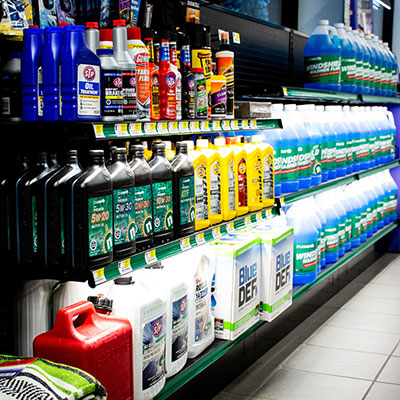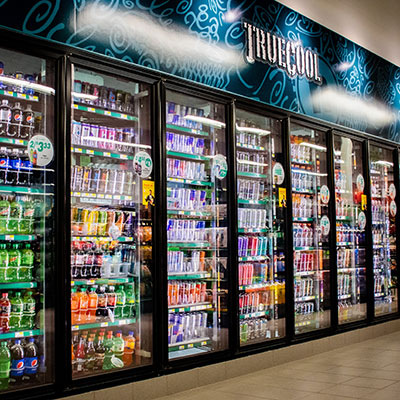Tailored services for your inventory needs
We count c-stores and provide deep insight on inventory data. Our teams perform financial, hybrid and item level scan inventory services for convenience stores across the country. Our auditors are the front-line force to help our clients maintain accurate inventory data so they can reduce and control loss. From advanced reporting to proven processes that ensure accuracy, Quantum Services is the premier auditing services firm for the convenience store industry.

Financial Audits
Efficient and actionable
Financial audits calculate the total retail value of all product available for sale. It’s broken down by department or category as well as geographic location within the store. This audit is the most common in the c-store industry.
- Efficient. The data is easily understood and utilized.
- Low tech. Integration with store systems or price books is minimal.
- Easy to understand. Financial audits provide less data to evaluate.

Hybrid audits provide more options and combine benefits of scan audits at a lower cost. There are three types: Financial audit with price book accuracy (FAPA) allows pricing verification via scan; Financial audit with item level features (FIL) offers pricing integrity without item level detail; and Combination audit (COMBO) combines a scan and financial audit.
- Pricing and department accuracy. As not all data is entered manually, accuracy increases.
- Cost savings. Hybrid audits are less expensive than scan audits.
- Interim step to ILSA. Some store operators prefer hybrid before committing to full ILSA.

Item Level Scan Audits
Detailed and focused
Item level scan audits scan the barcode (SKU) for each product and enter the quantity. For ILSA audits to be reconciled, we compare the count for each item with the “on-hand” book figure. ILSAs involve a mindset shift from retail and category management to item level management.
- Detailed data. Shortage or overage data lead to a better understanding of concerns and facilitate auto replenishment.
- Pricing and department accuracy. As no data is entered manually, accuracy increases.
- Greater frequency in auditing high-risk items. Focus on auditing high-risk items more often.

Financial Audits
Efficient and actionable
Financial audits calculate the total retail value of all product available for sale. It’s broken down by department or category as well as geographic location within the store. This audit is the most common in the c-store industry.
- Efficient. The data is easily understood and utilized.
- Low tech. Integration with store systems or price books is minimal.
- Easy to understand. Financial audits provide less data to evaluate.

Hybrid audits provide more options and combine benefits of scan audits at a lower cost. There are three types: Financial audit with price book accuracy (FAPA) allows pricing verification via scan; Financial audit with item level features (FIL) offers pricing integrity without item level detail; and Combination audit (COMBO) combines a scan and financial audit.
- Pricing and department accuracy. As not all data is entered manually, accuracy increases.
- Cost savings. Hybrid audits are less expensive than scan audits.
- Interim step to ILSA. Some store operators prefer hybrid before committing to full ILSA.

Item Level Scan Audits
Detailed and focused
Item level scan audits scan the barcode (SKU) for each product and enter the quantity. For ILSA audits to be reconciled, we compare the count for each item with the “on-hand” book figure. ILSAs involve a mindset shift from retail and category management to item level management.
- Detailed data. Shortage or overage data lead to a better understanding of concerns and facilitate auto replenishment.
- Pricing and department accuracy. As no data is entered manually, accuracy increases.
- Greater frequency in auditing high-risk items. Focus on auditing high-risk items more often.
